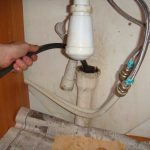How to clean up a blockage in a sink
The blockage in the sink occurs suddenly and at the wrong time. This problem instantly stops all processes in the house, from cooking to the elementary need to wash your hands. There are many folk and professional remedies to quickly solve this problem.
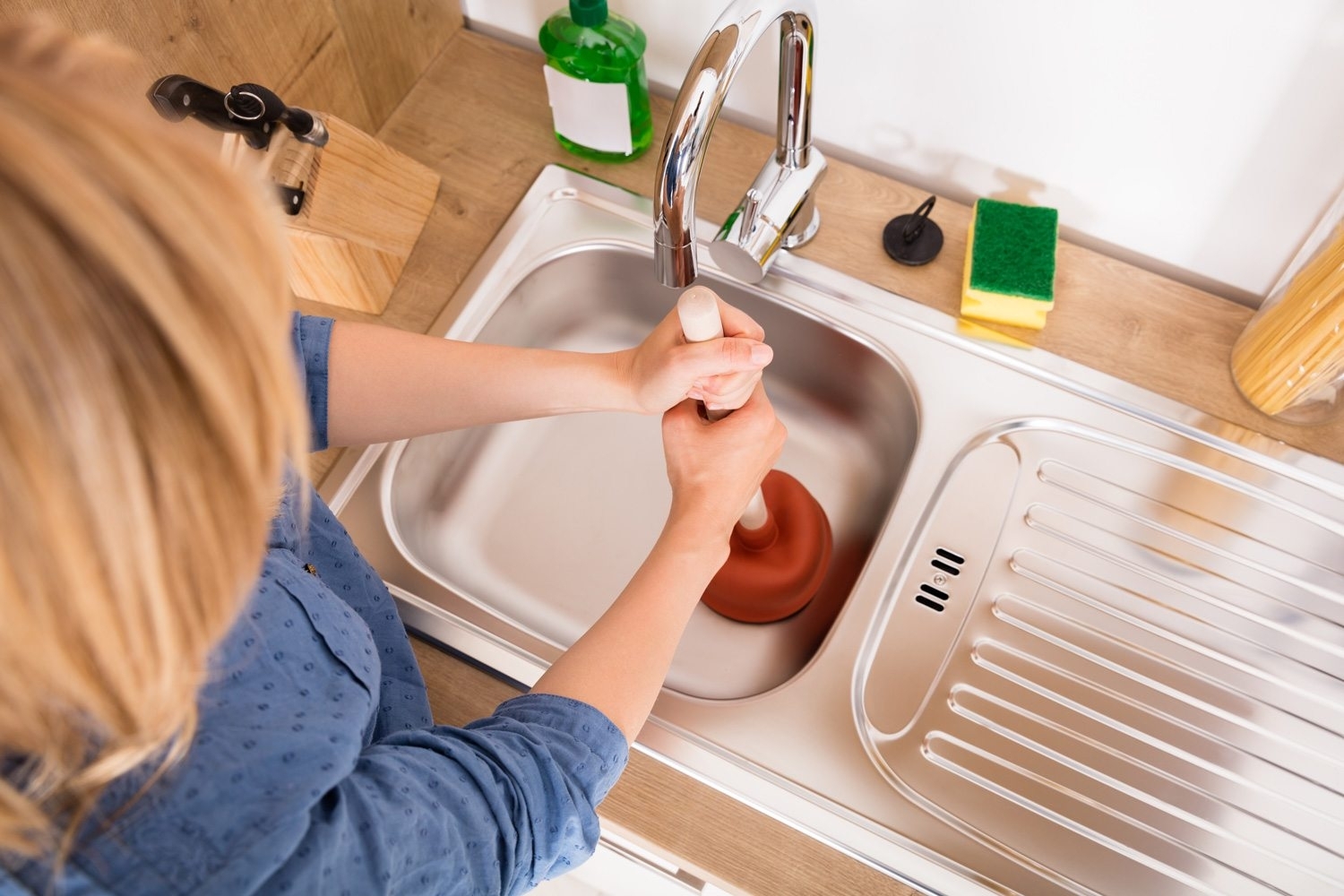
Why is the sink clogged?
The sink may become clogged due to the fault of household members or for an objective reason:
- If parts of the sewer system are incorrectly installed, artificial barriers can form that accumulate fine debris. Over time, a plug forms that interferes with the drainage of water.
- Insufficient inclination of the pipe will also collect residues of grease, food and detergents on the walls. This gradually narrows the inlet diameter.
- The siphon mesh traps solid particles, fine debris and hair from outside. Inspect and clean this item regularly, otherwise an accident is inevitable.
- If you have an old sewer system with cast iron pipes, this can lead to frequent blockages. The inner surface of the pipes has a rough surface that retains small debris and mucus. In such cases, regular prophylaxis is necessary.
- The lack of a safety net in the sink also causes blockages. When washing dishes and vegetables, we do not notice how much debris flies straight into the sewer pipe. The same goes for animal hair or fur. The mesh retains large waste, prevents it from entering the drain and clogging the kitchen.
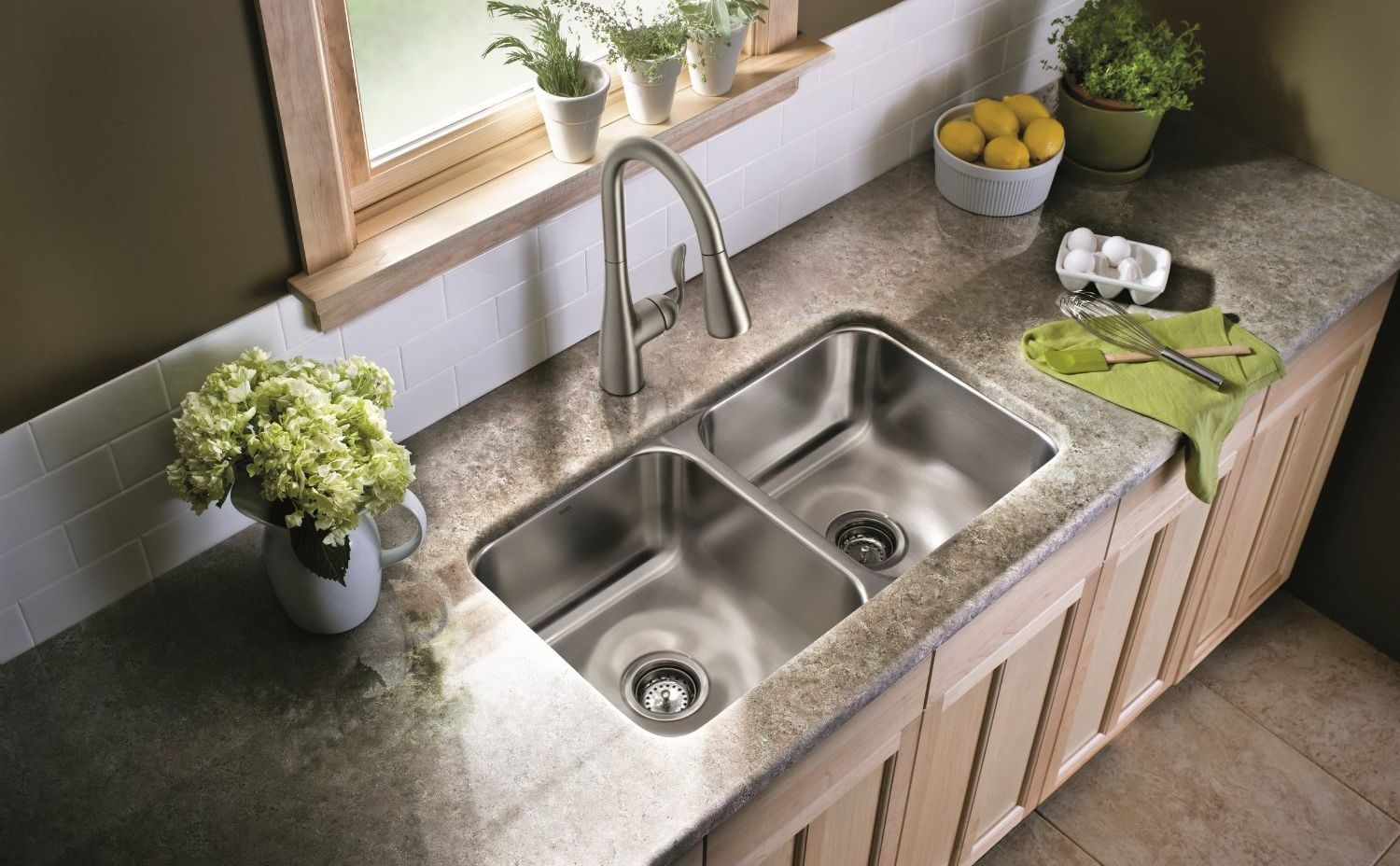
How to unclog and break through a blockage
There are many popular ways to clean the sink quickly and efficiently. Everything for this can be found in the house or stock up in advance in a hardware store. And most importantly, it will cost a penny.
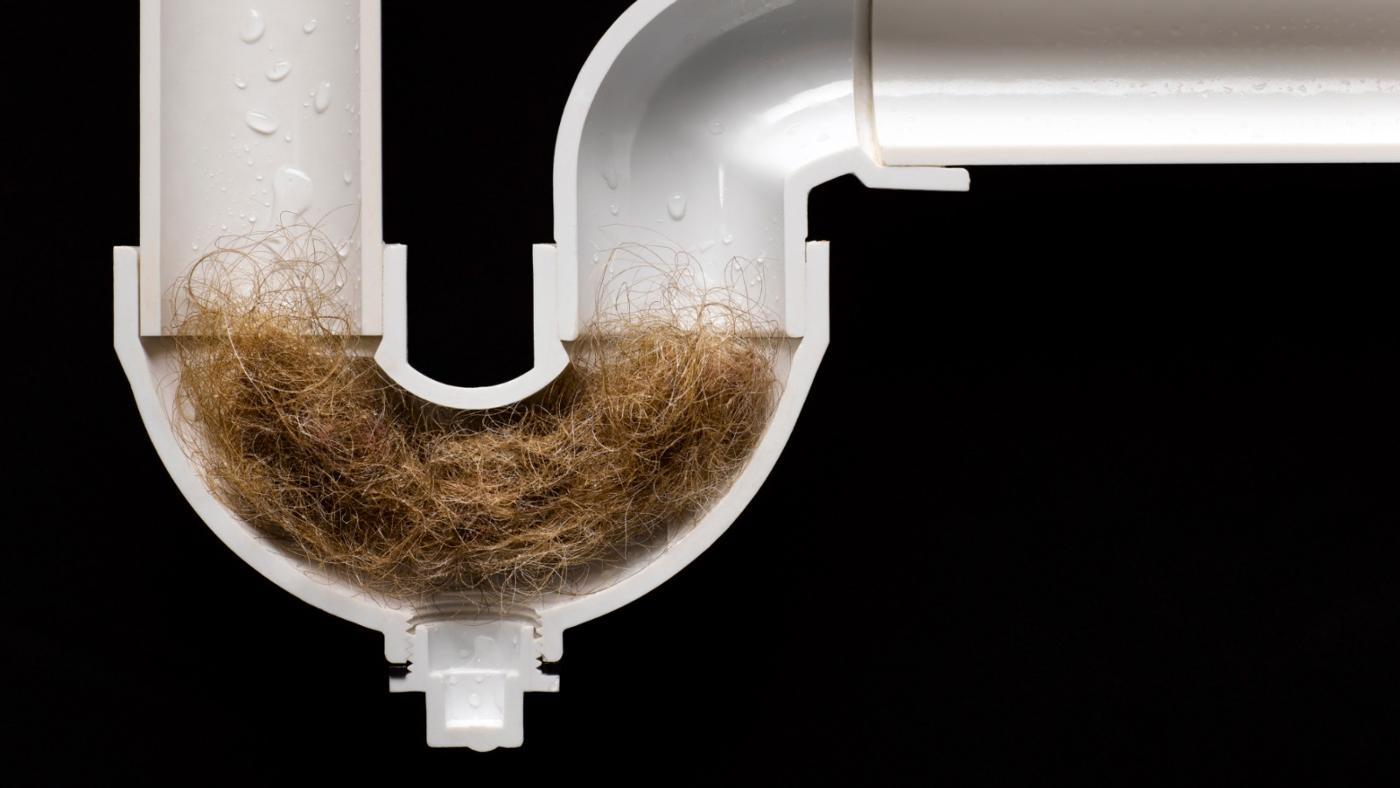
Boiling water
You can remove a blockage in the sink at home, consisting of a layer of fat, using hot water.
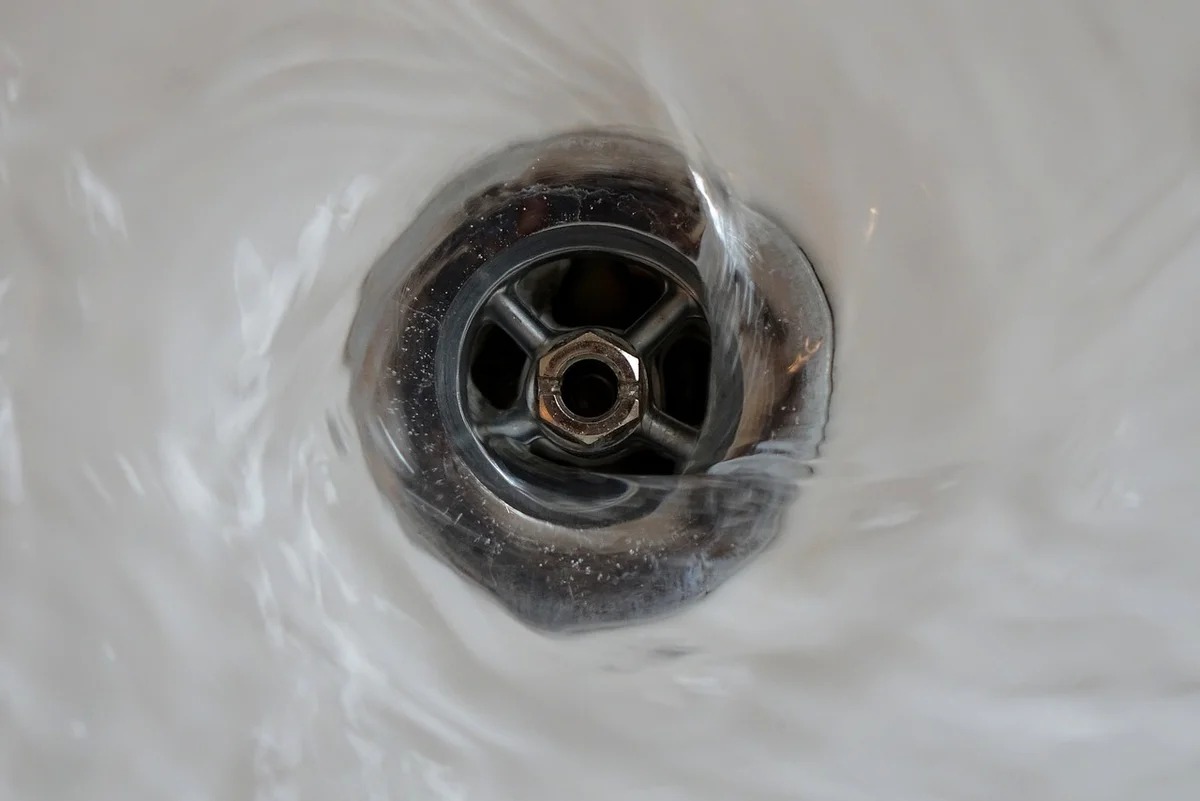
- Turn on hot water at full power for 15-20 minutes. A strong jet will break through the formed plug, and the high temperature will dissolve the fat deposits.
- Heat water in a kettle and pour boiling water directly into the drain. This instantly removes greasy build-up. The method is suitable provided that there are metal and cast iron pipes in the house. If your system is made of plastic, this method is not suitable. This can melt and deform the pipe.
Ventuz
The plunger is considered to be an effective and safe remedy for removing blockages. The method is suitable for all pipes, since the waste plug is knocked out by the pressure created by the rubber or silicone hemisphere of the plunger.
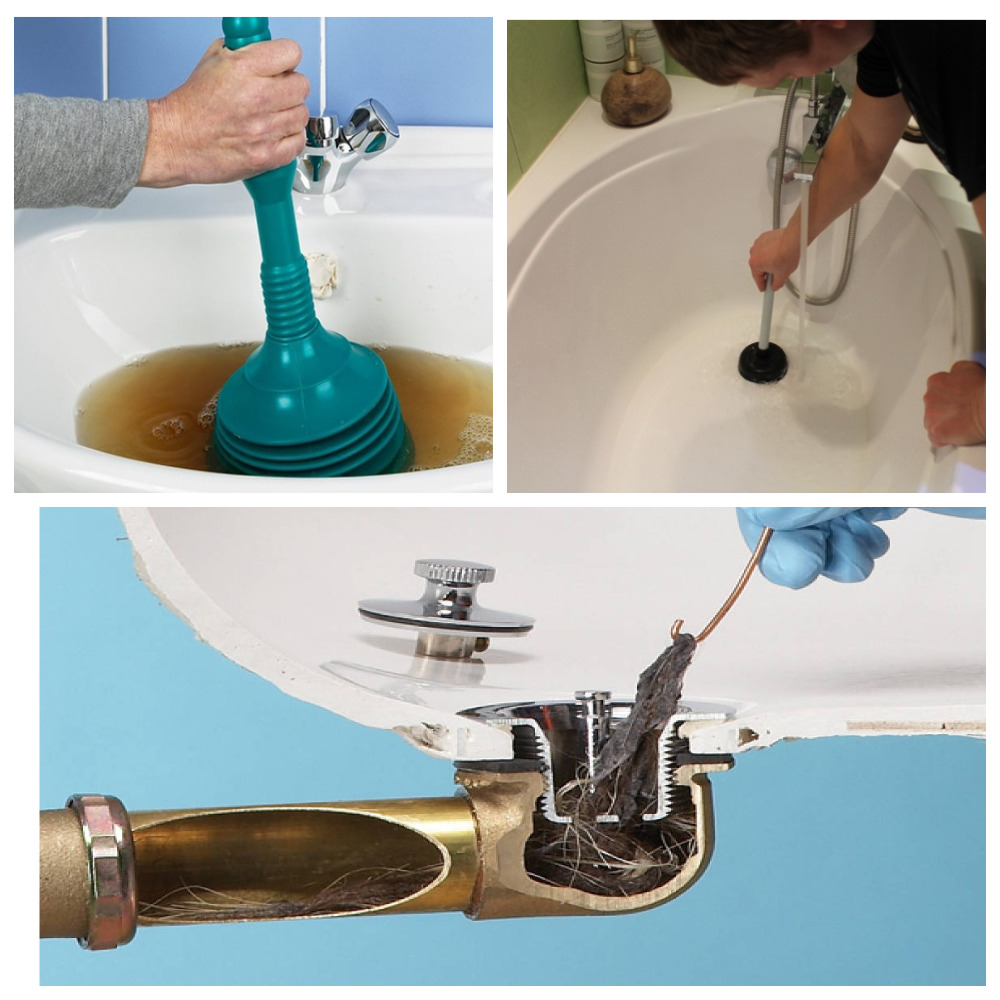
It is important here that the diameter of the nozzle is much larger than the drain hole. This will make the compression pressure more effective and efficient.
Soda and salt
A mixture of soda and salt can be poured into the drain overnight. The crystals will gradually dissolve the formed fat plug. In the morning, turn on a strong pressure of hot water for 5 minutes.
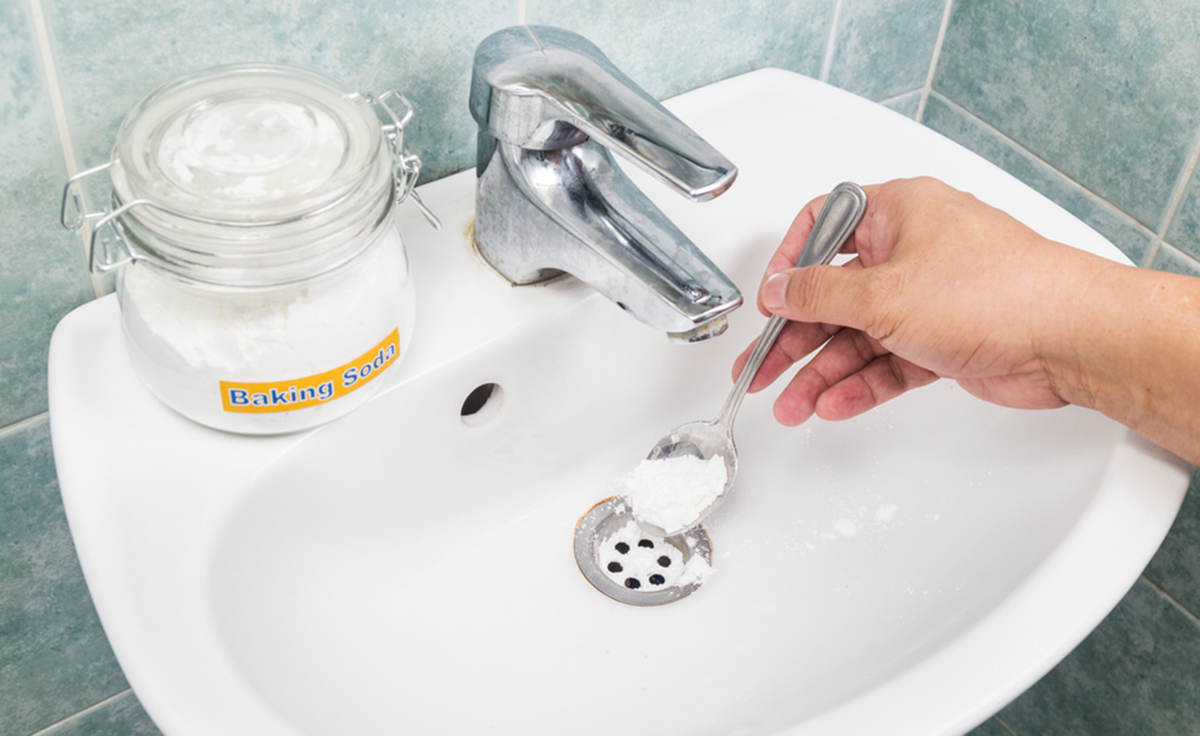
Another way is to use two parts baking soda and one part salt. Dilute the mixture with water to a liquid state and pour into the pipe. After 10 minutes, turn on hot water so that it rinses out the insides of the pipes with a salt and soda solution. You can use the same product to clean your kitchen sink.
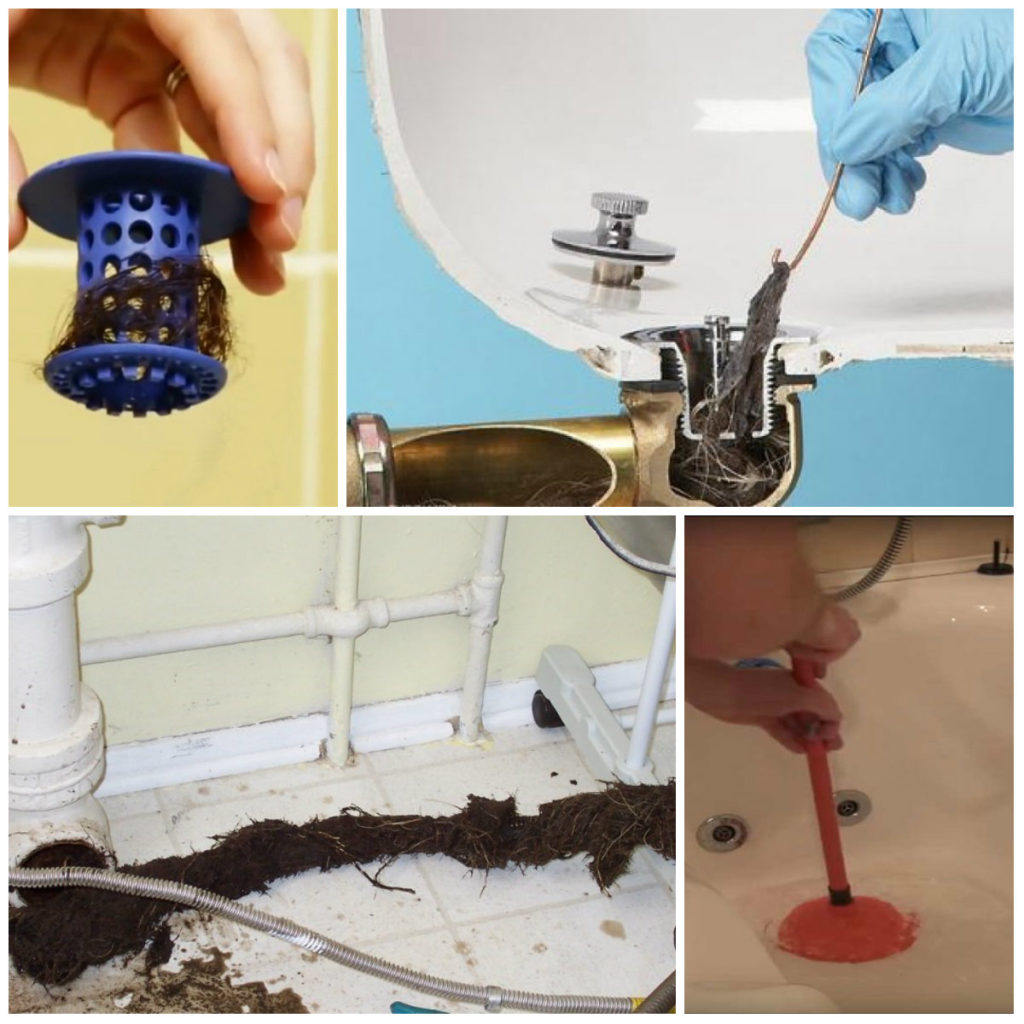
Vinegar
The vinegar method is best used for a sewer system made of resistant materials. Plastic can deteriorate from such a strong product.
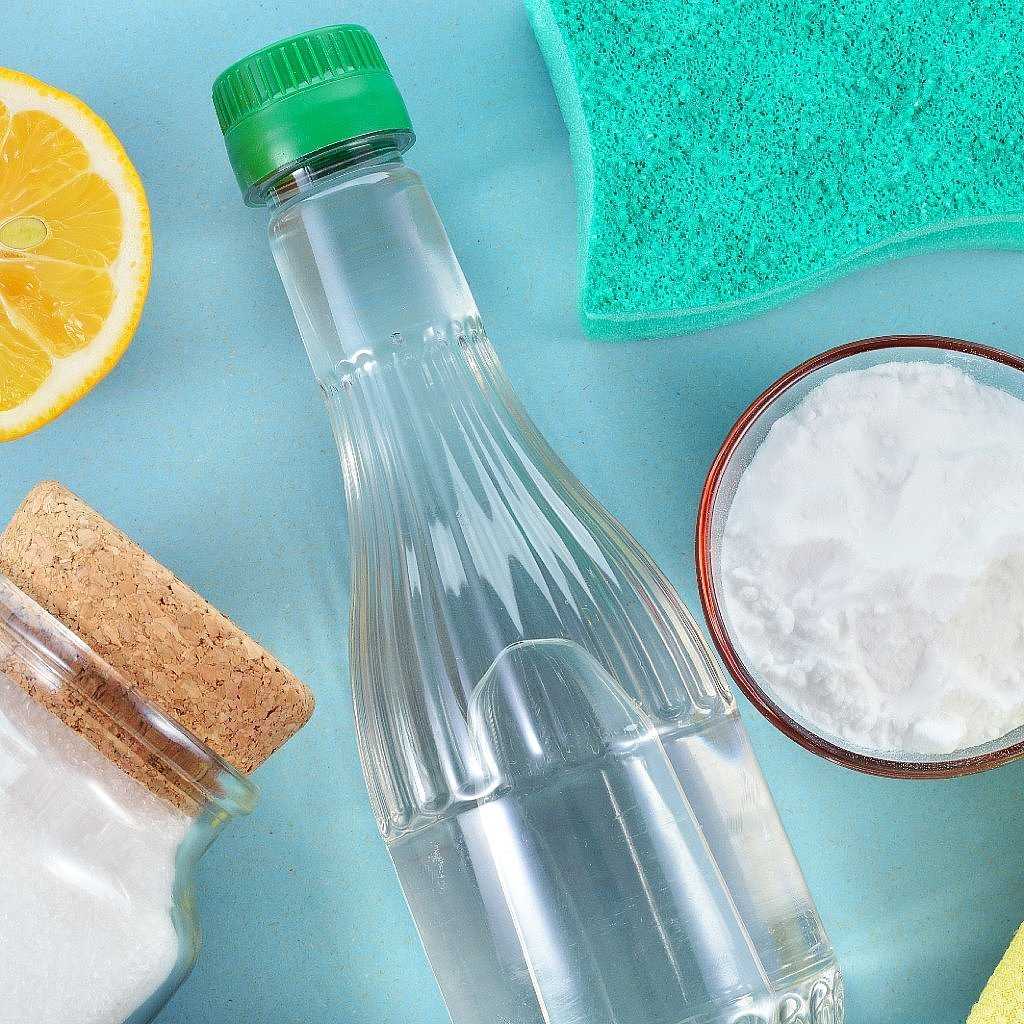
It's important that the bubbling reaction takes place where the blockage is forming, not in your cup. Therefore, pour baking soda into the drain hole, and top it with 9% vinegar. The bubbling will dissolve, reduce and expel grease and adhering solids.
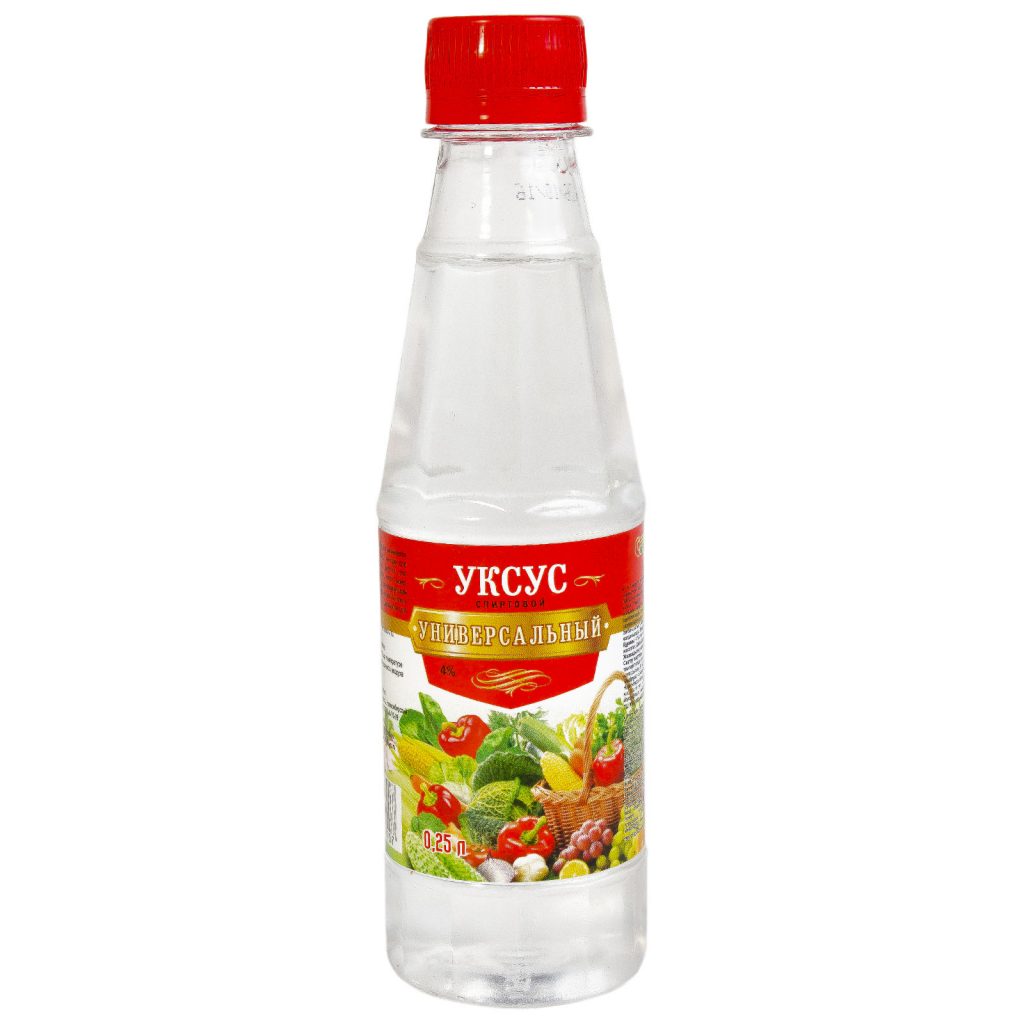
Vacuum cleaner
A vacuum cleaner turned on for the blowing air function can help clear and push the blockage out. This innovative method is suitable for light blockages. A vacuum cleaner may not cope with a serious garbage jam created for a long time and significantly aggravate the situation.
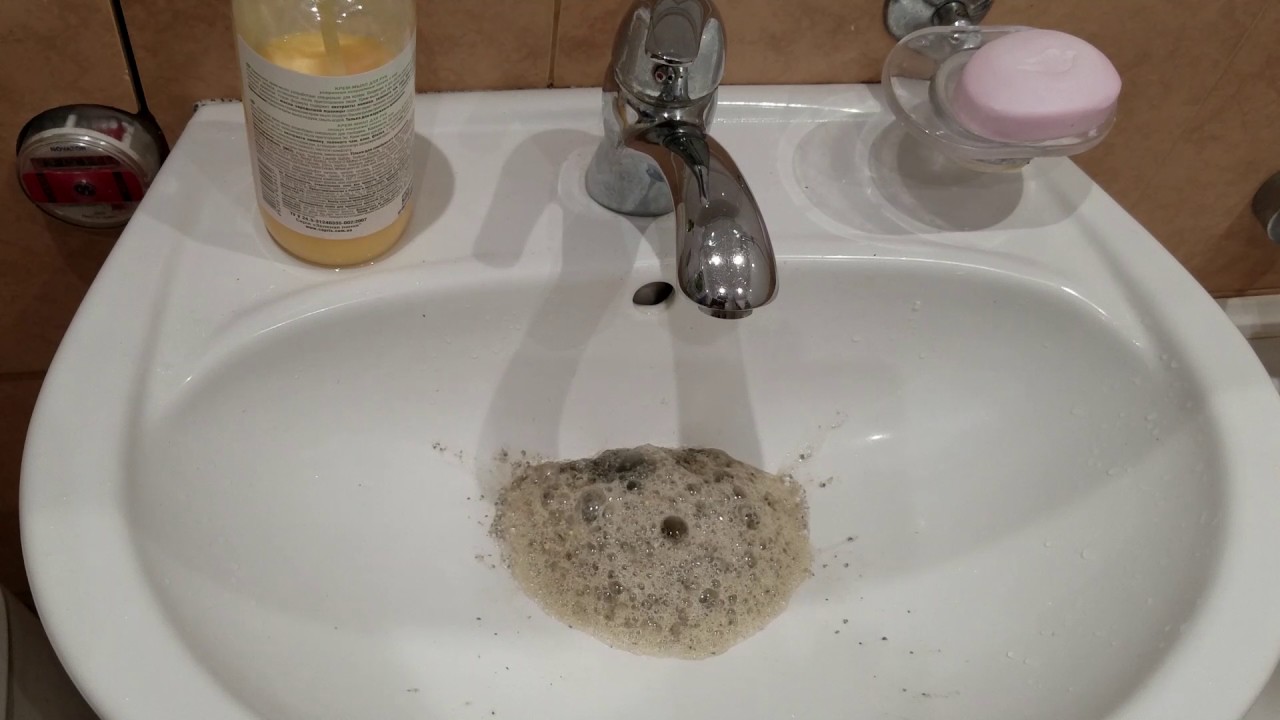
Wrap a clean cloth around the tube of the vacuum cleaner and secure in this position. Place it on the drain and turn on the vacuum cleaner. Under pressure, the blockage breaks through and is pushed into the sewer.
Boer
The drill works on the principle of a cable familiar to every home craftsman. The accessory is thick and long. The drill is wrapped along the entire length with a strong spring spiral, which additionally collects small debris.
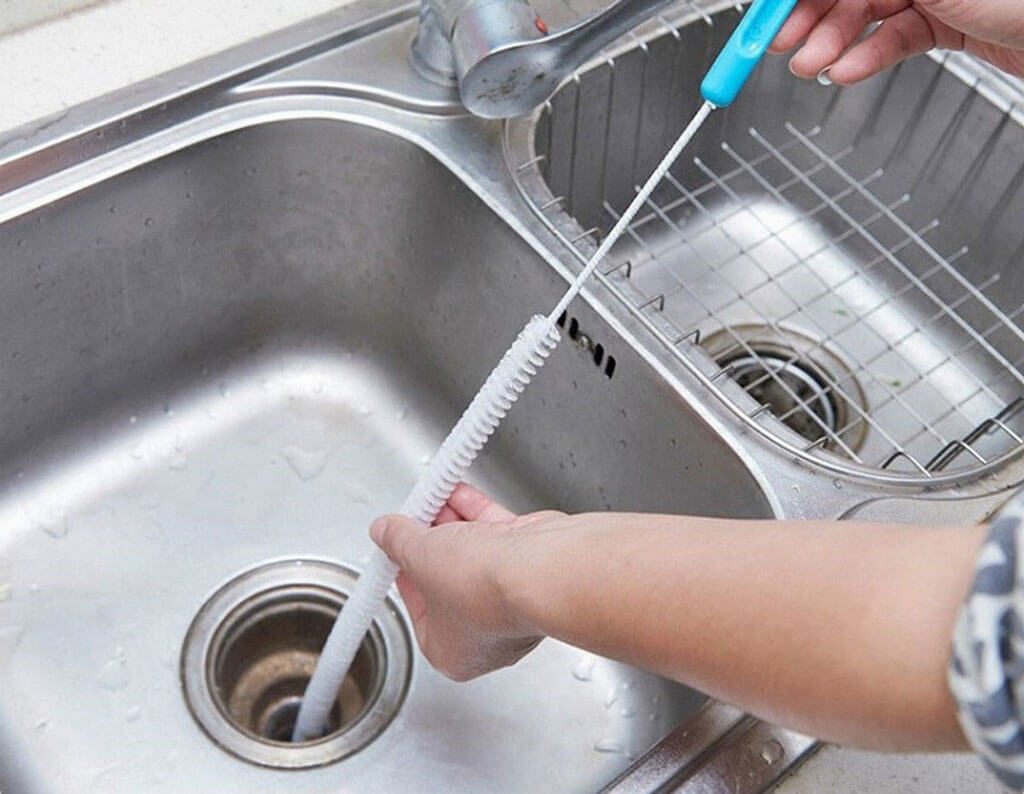
This is a great option for cleaning wide sewer pipes, especially around bends and curves.
Cable
The metal cable is inserted into the clogged drain with a rotating movement. At its end there is one or more hooks, a brush or a point. It is a versatile tool for cleaning pipes made of any material. If you handle the cable with care, it can serve you for more than a dozen years.
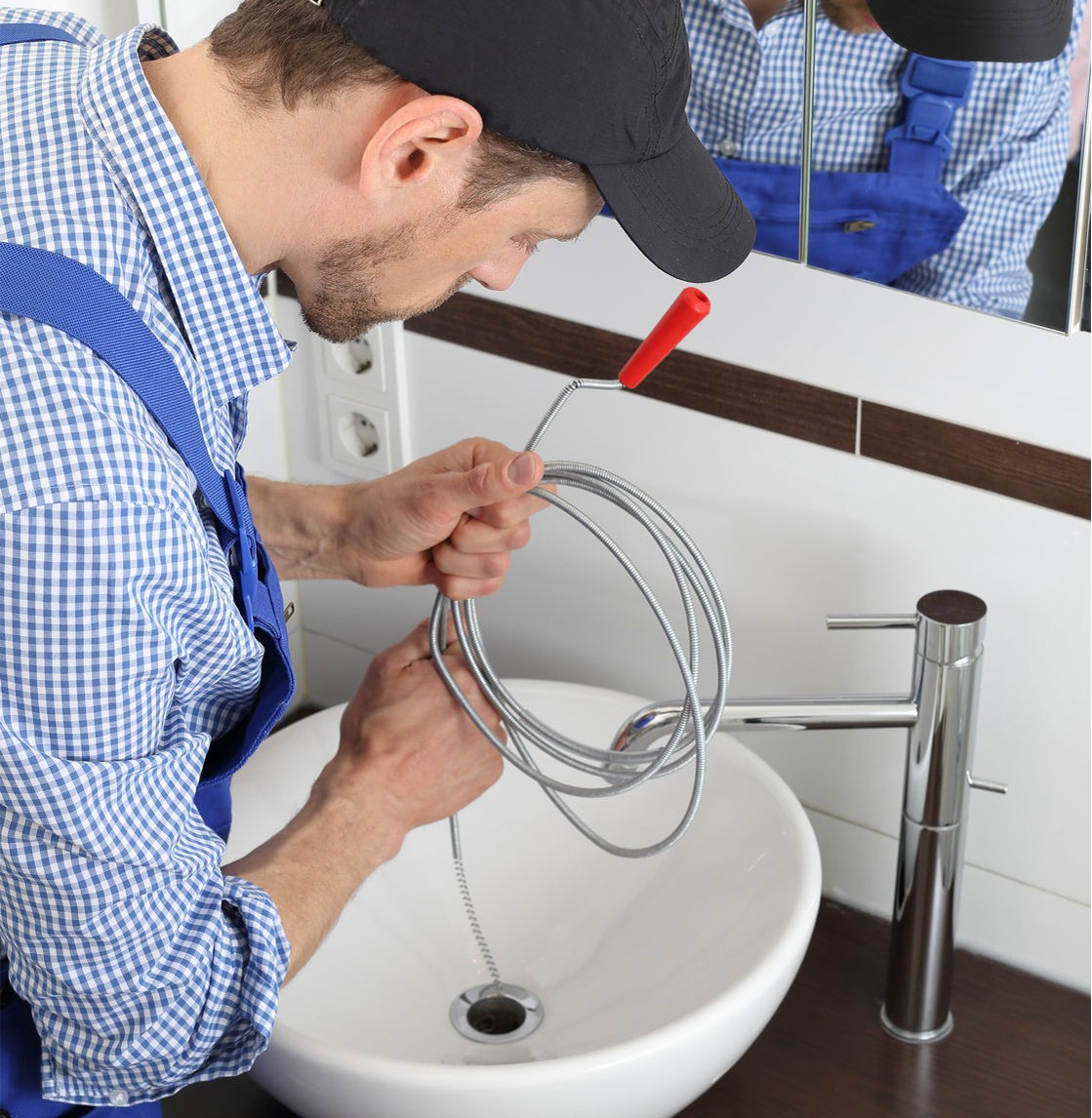
When there is no such device in the house, and you need to clean the sewer immediately, try making it from a regular plastic bottle. Cut it in a spiral pattern to form a long, elastic band.
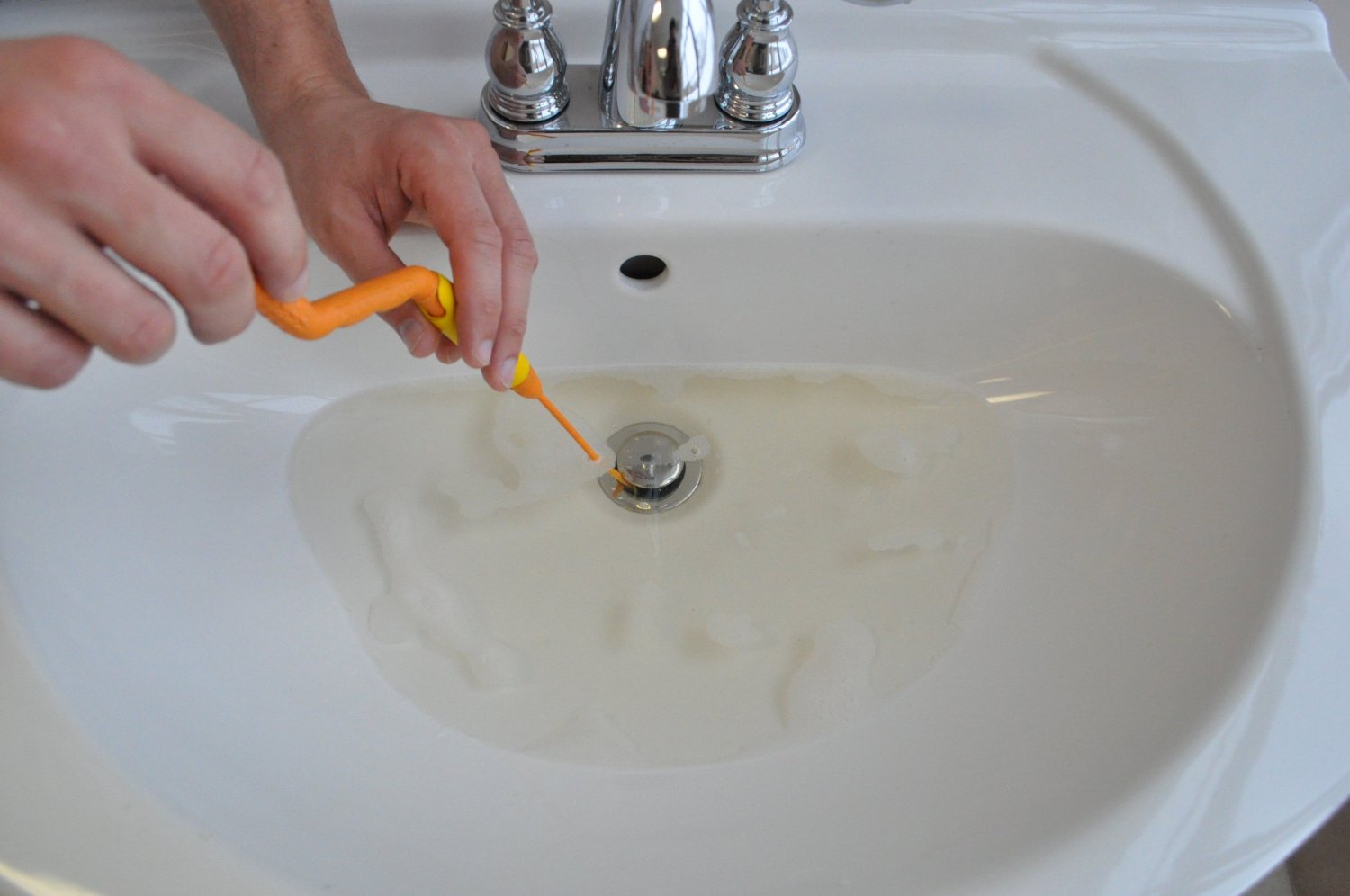
Such a plastic cable must be inserted into the pipe carefully, with screwing movements, so that the material does not break and does not bring even more problems with the sewage system in the kitchen.
Use of special tools
Along with folk remedies, chemical reagents sold in specialized stores are effectively used in everyday life. It must be remembered that chemistry can negatively affect the condition of rubber gaskets and plastic.
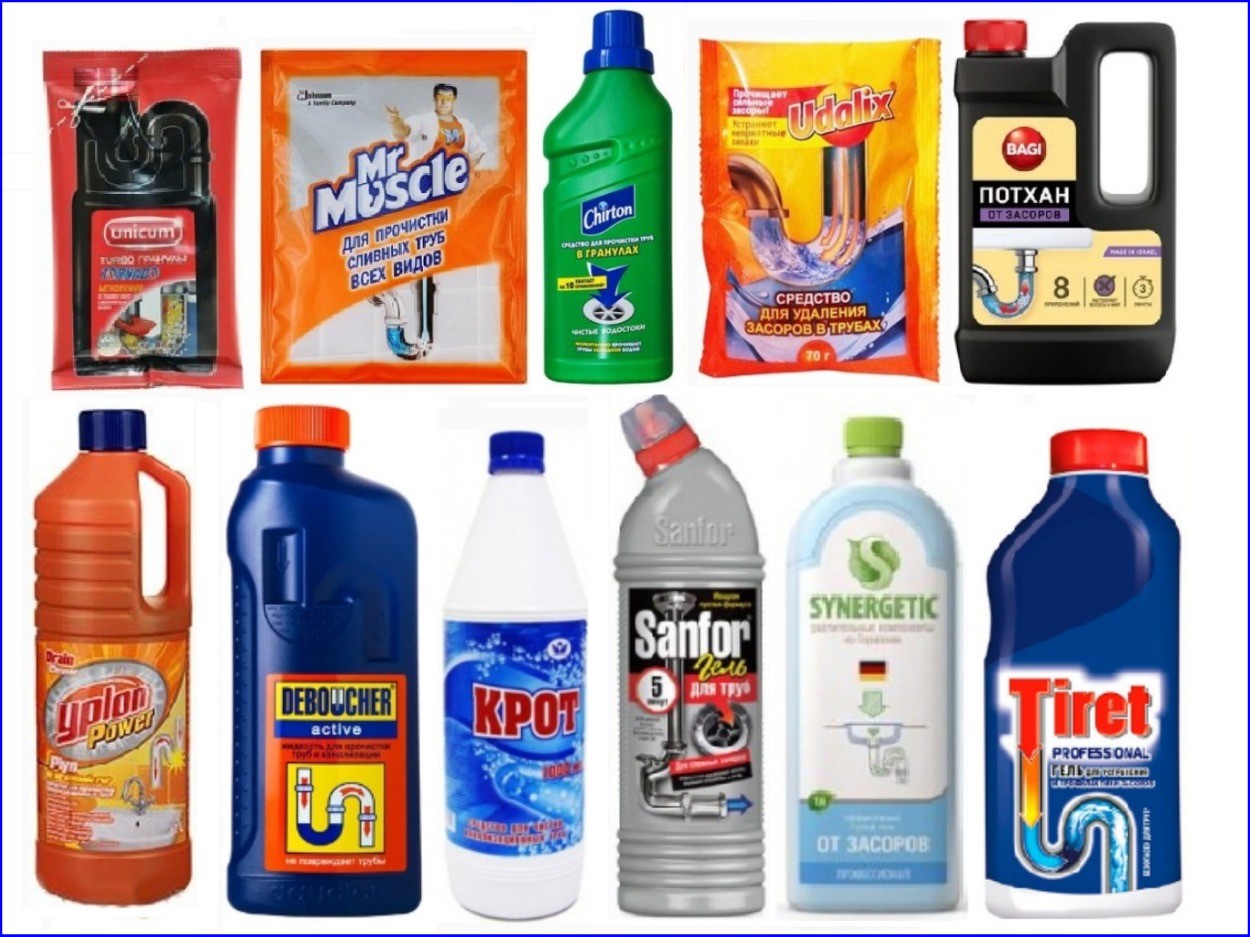
Liquid
Liquid special agents are poured into the drain hole. They quickly reach the cause of the blockage and instantly get rid of deposits. Fat accumulations, dirt, mucus dissolve under the influence of the components that make up the composition.
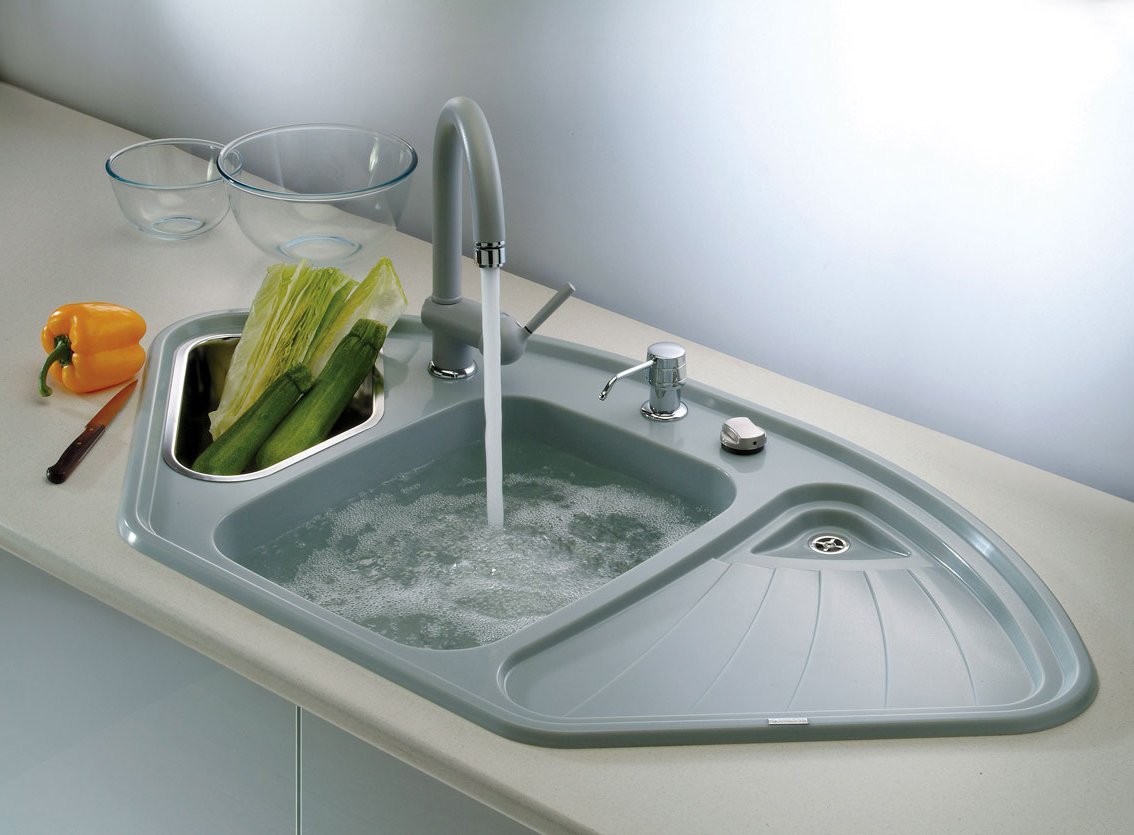
The liquid copes with hair, food debris, small plastic objects that have fallen into it. The method is not suitable for blockages where standing water has already formed, since the active ingredients will not be able to clear the main cause of the accident.
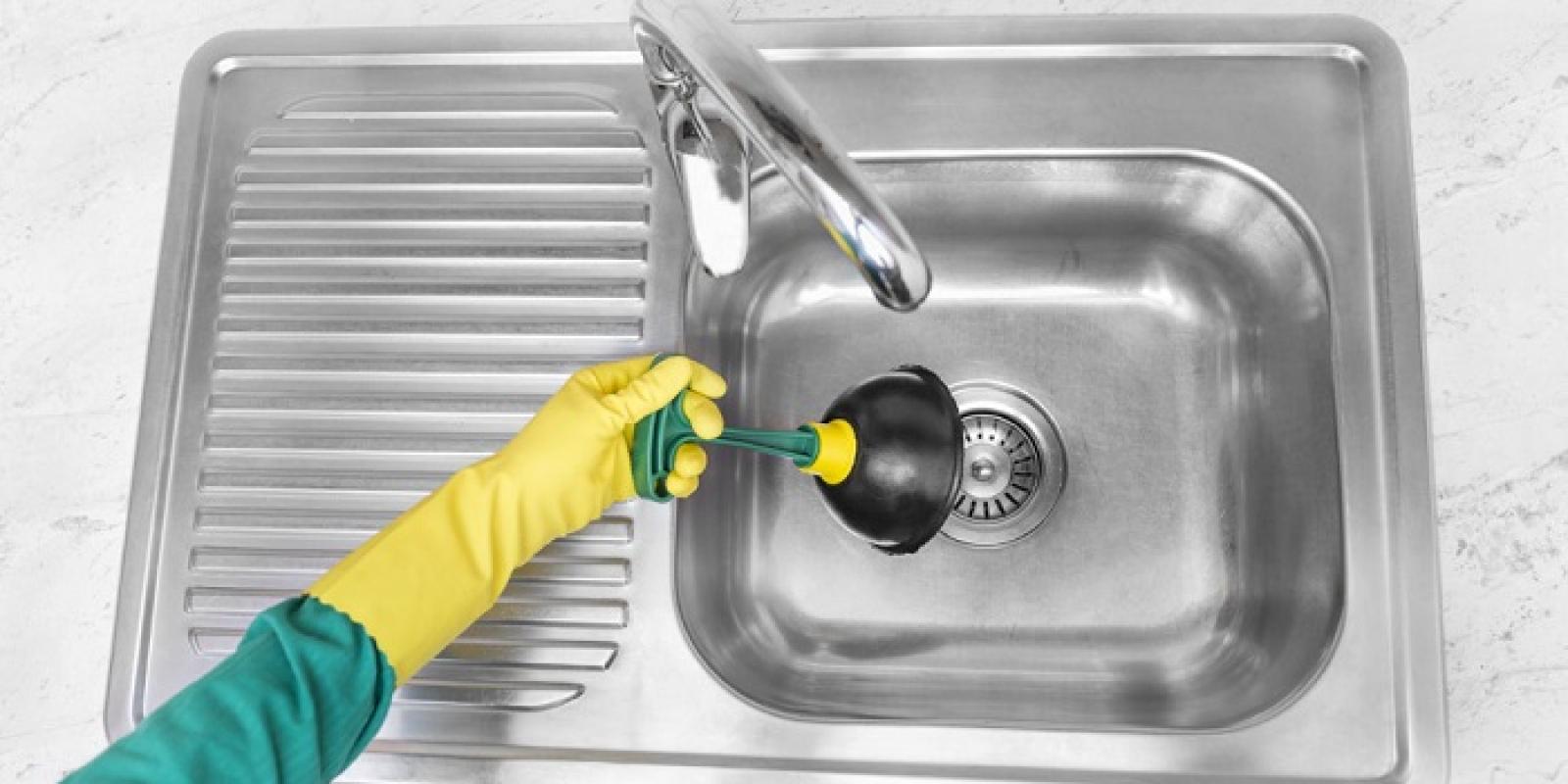
Gel
Gel formulations are more viscous and fluid than liquid formulations. The thick consistency manages to envelop everything in its path, is evenly distributed over problem areas. With the help of the gel, you can quickly remove mucus and fatty deposits, food debris and animal hair.
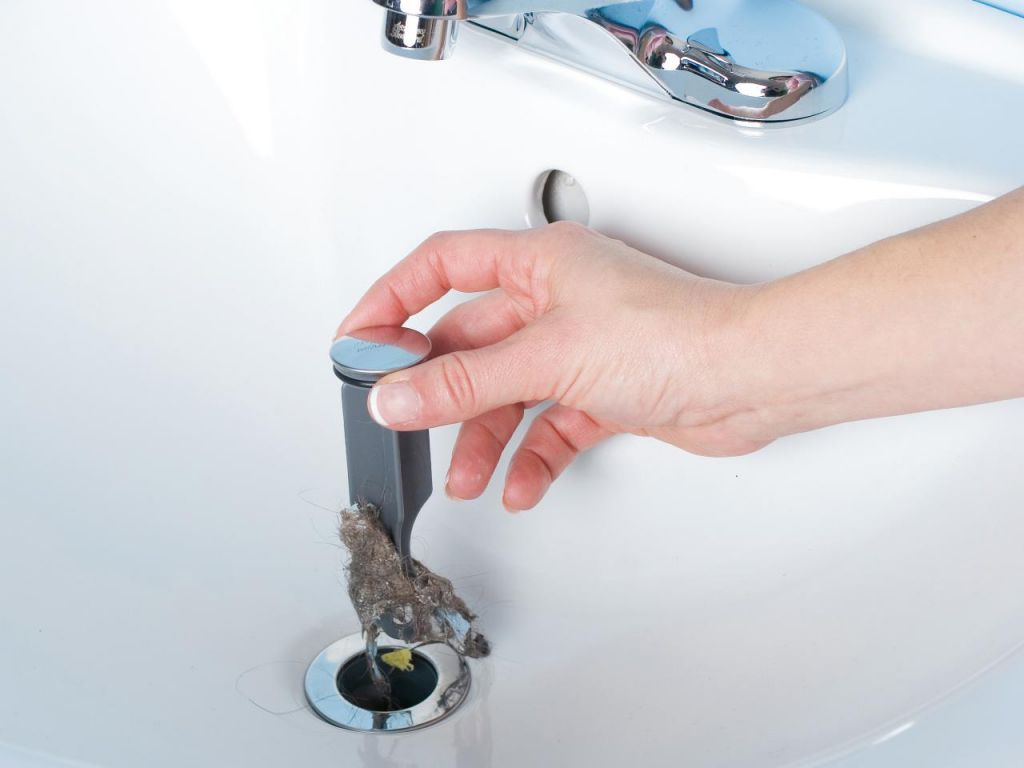
The tool can be used for prophylaxis in a smaller amount than indicated in the instructions.This prevents the sink from clogging up with debris every day.
Powder
The powder is popular for its convenient, small packaging and ease of use. The composition contains in a high degree of concentration the most active components that cope with difficult situations.
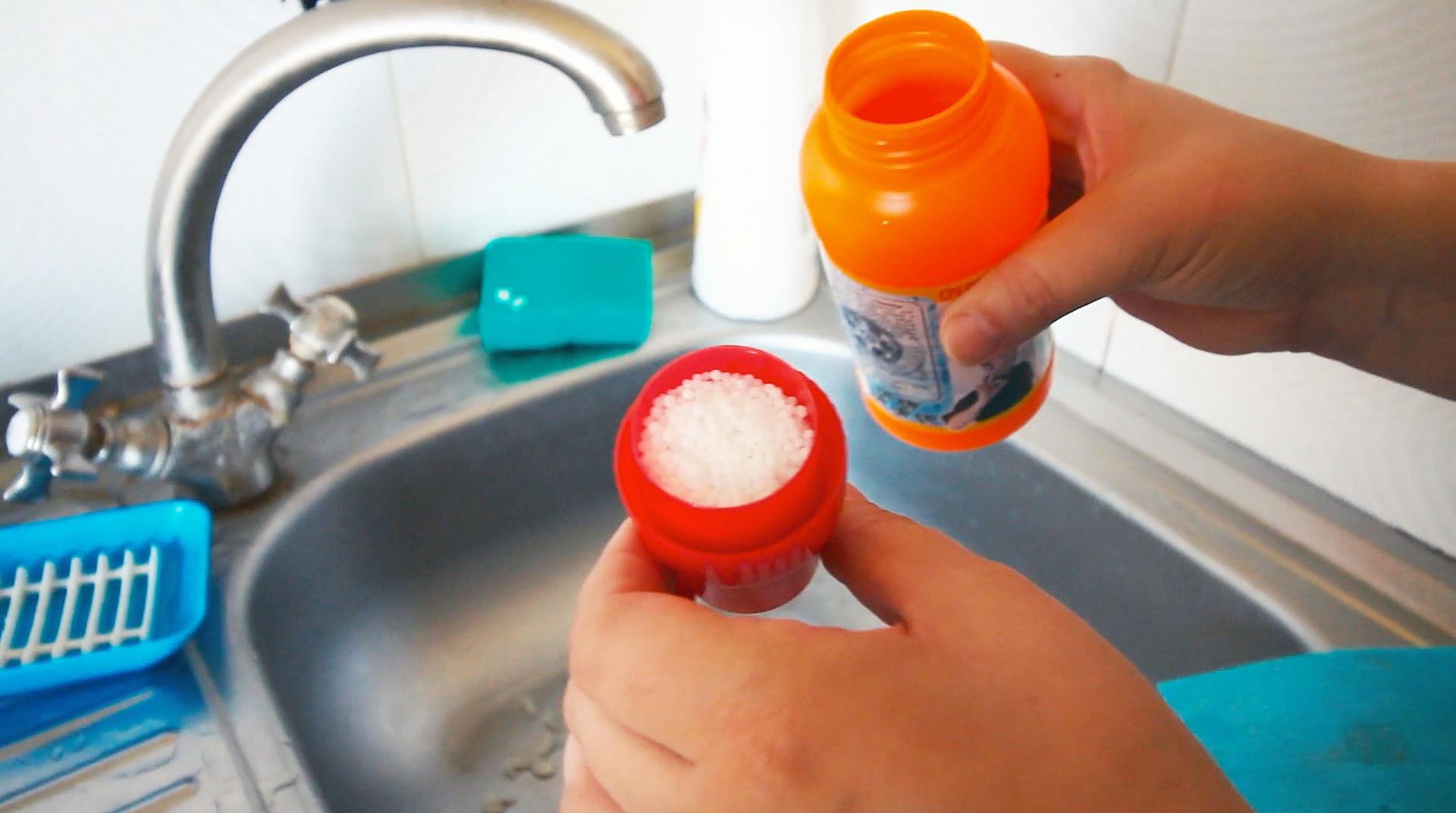
The powder is poured into the drain hole, a little water is poured from above. Its remains are well flushed out of the sewer system, leaving no plaque or mucus. Be sure to follow the recommendations specified in the instructions so that the product does not begin to corrode the pipe walls.
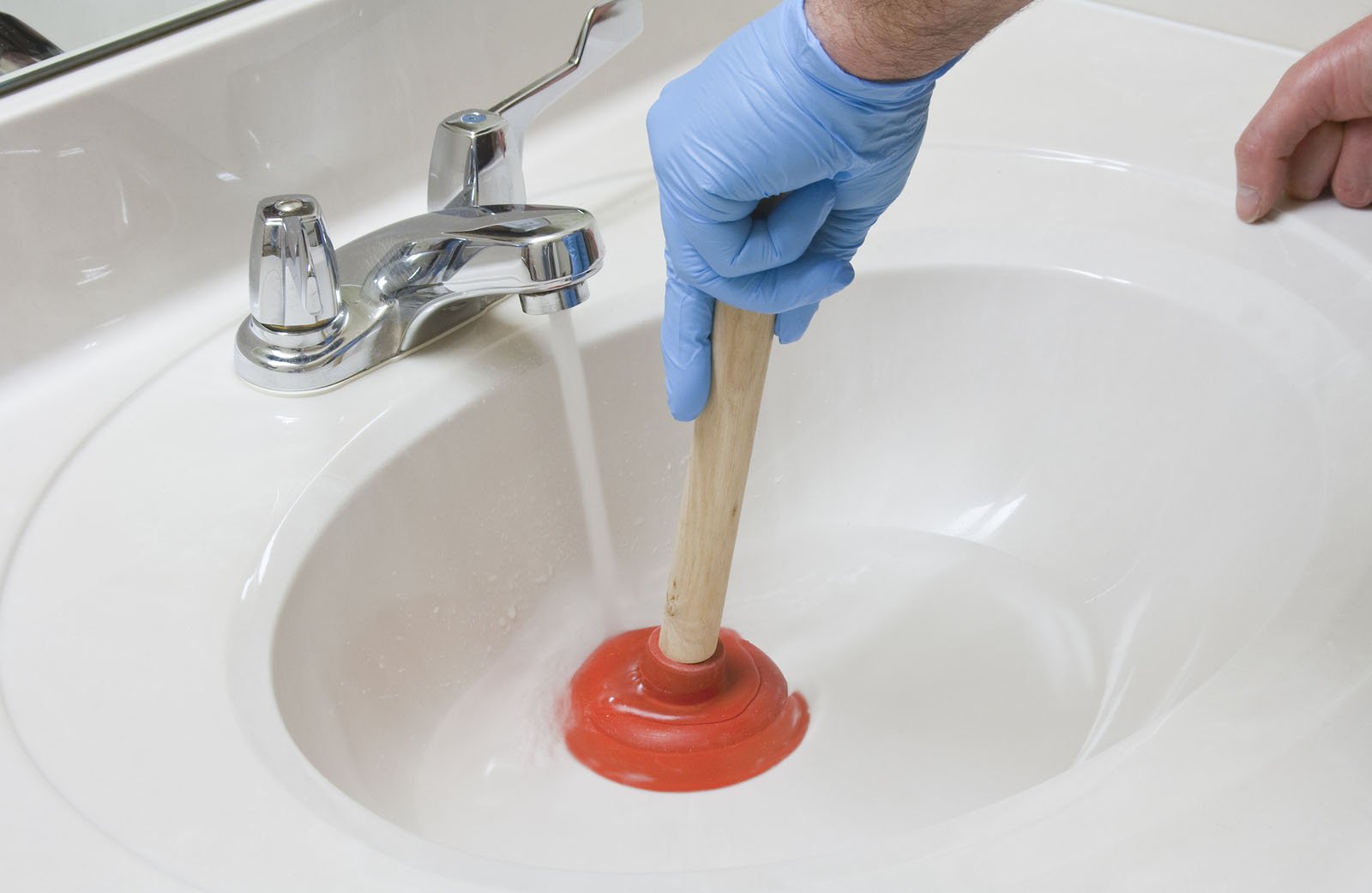
Granules
Granular formulations are used in especially advanced cases. Complex, old blockages, dense grease plugs are removed using a high concentration of active ingredients.
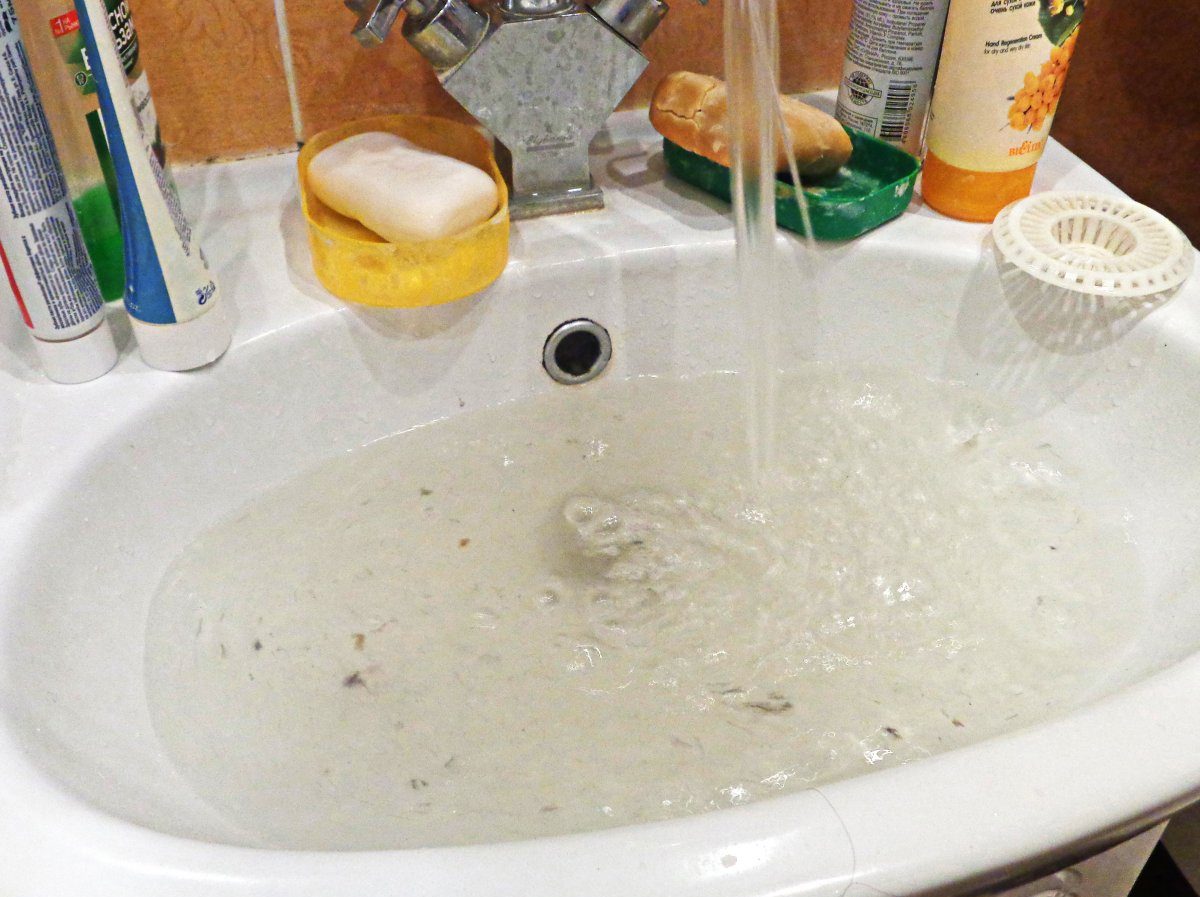
The agent is poured into the lid and then into the drain inlet. Follow the time indicated in the instructions and flush the pipes well with water. Granules are sold in a plastic container with a tight screw cap.
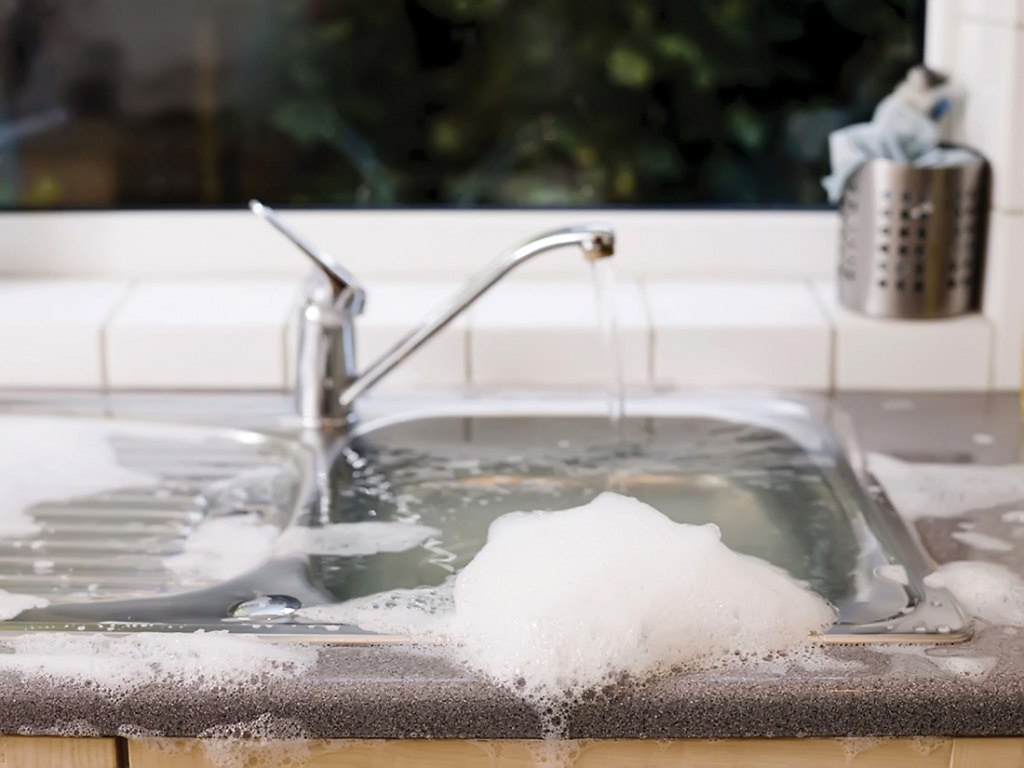
How to disassemble the structure
Sometimes the detergent is not enough to clear the blockage. Debris can accumulate in bends, in hard-to-reach places in the siphon, or in other parts of the sewer system. Then it is necessary to disassemble and clean the entire installation.
For this you will need:
- wrench;
- a basin or other container;
- sponge or rag;
- screwdriver;
- improvised items to remove weed plug, for example, a cable or drill;
- means for removing mucus and accumulated plaque.

To disassemble the sewer system and get to difficult areas, you need to perform a few simple steps:
- Place any container under your home siphon to collect the released water.
- Use a wrench at the bottom of the sink to unscrew the cleaning hatch.
- Remove the sump.
- Remove all visible debris, and remove the residues with the help of chemicals or folk remedies.
- If the siphon cannot be partially pulled out, unscrew all fasteners and remove completely.
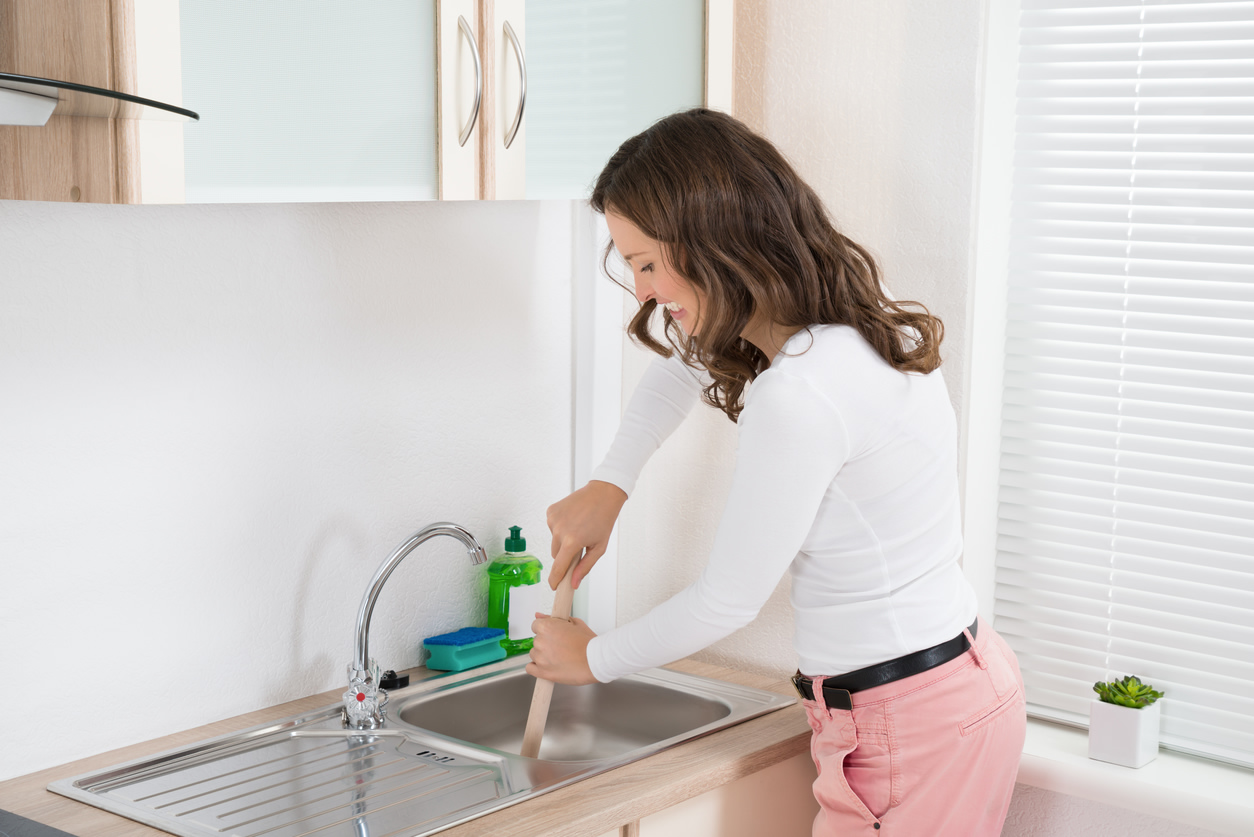
Problem prevention
To prevent the formation of blockages in the sink, it is necessary to carry out preventive measures. Precautionary measures prevent mucus, grease and food debris from accumulating on the tube walls.
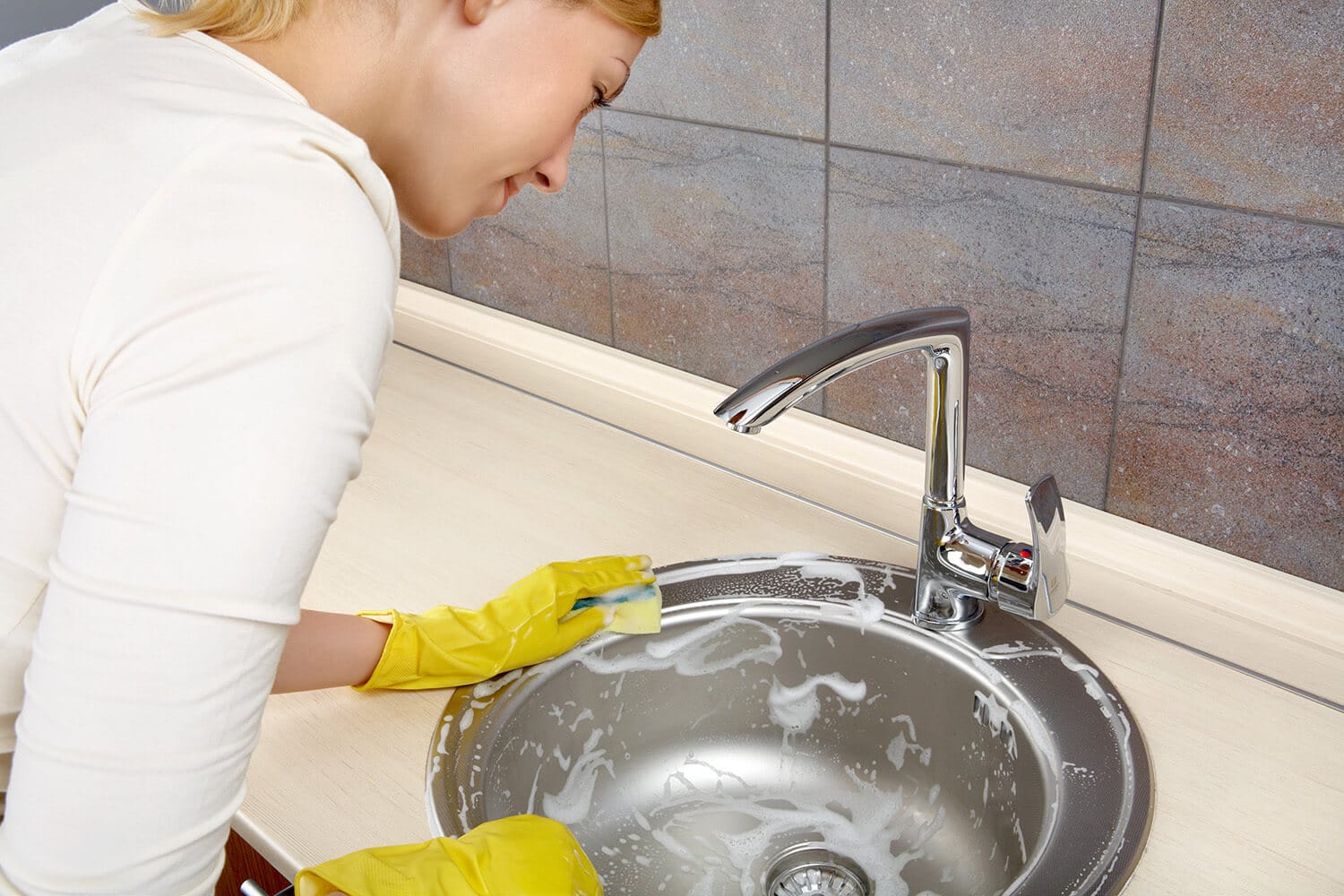
- Pour hot water into the drain every week to dissolve the grease and grease.
- To enhance the preventive effect, combine hot water with household chemicals or soda-vinegar solution.
- Place a strainer on the drain hole. It will filter large pieces of waste, wool and hair.
- Do not dispose of anything insignificant from your point of view into the drain hole. Tea leaves, bread crumbs, cookie leftovers, and canned oil will eventually form unwanted deposits on the pipe walls.
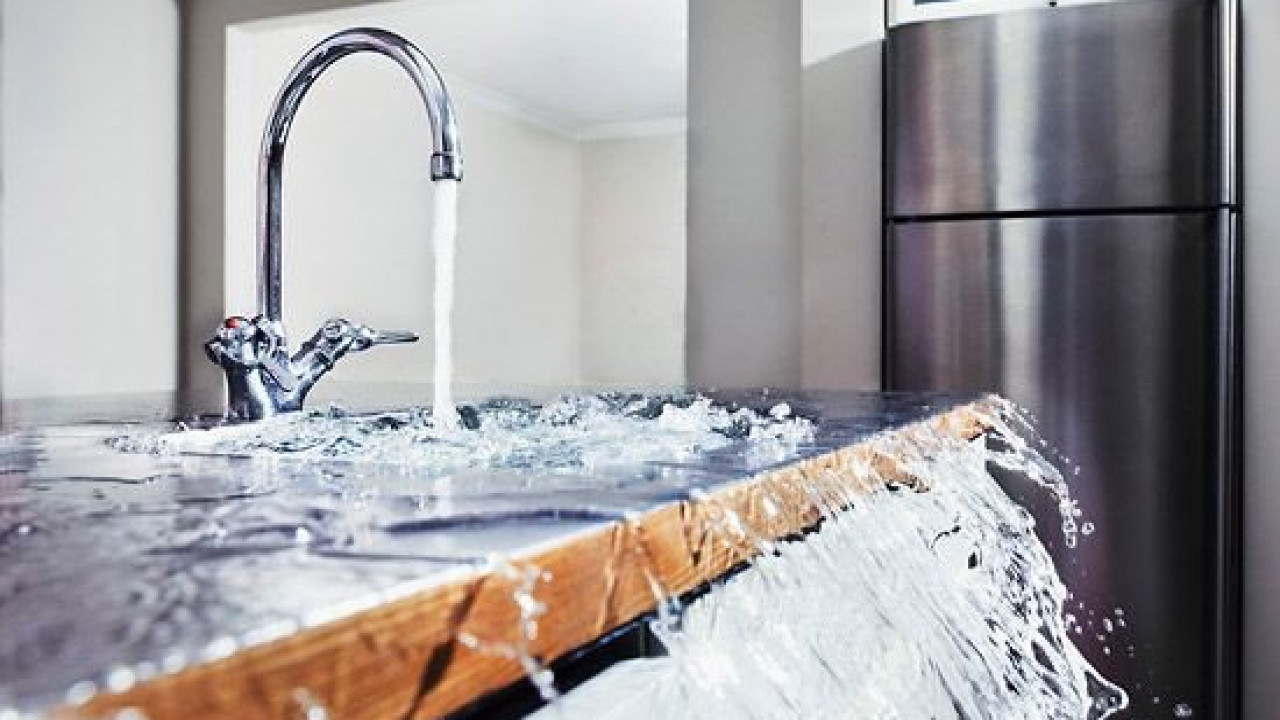
It is easier to prevent a nuisance than to eliminate its consequences. Follow simple rules of cleanliness and hygiene, keep the drain clean and you don't need to call a plumber.
Video: how to remove a blockage in a sink at home

